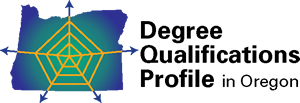| 14% |
Communicate effectively with youth and their families. |
20% |
20% |
20% |
20% |
20% |
20,
20,
20,
20,
20
|
|
| 14% |
Recognize symptoms of mental health and substance abuse issues. |
20% |
20% |
20% |
20% |
20% |
20,
20,
20,
20,
20
|
|
| 14% |
Identify appropriate stages of individual and family development, and symptoms of family dysfunction. |
20% |
20% |
20% |
20% |
20% |
20,
20,
20,
20,
20
|
|
| 14% |
Compare and contrast different criminological theories, especially as related to juvenile delinquency. |
20% |
20% |
20% |
20% |
20% |
20,
20,
20,
20,
20
|
|
| 14% |
Describe the juvenile corrections system and identify the intervention options and resources available. |
20% |
20% |
20% |
20% |
20% |
20,
20,
20,
20,
20
|
|
| 14% |
Demonstrate interactional skills in working with youth. |
20% |
20% |
20% |
20% |
20% |
20,
20,
20,
20,
20
|
|
| 14% |
Demonstrate familiarity with computer information systems. |
20% |
20% |
20% |
20% |
20% |
20,
20,
20,
20,
20
|
|

